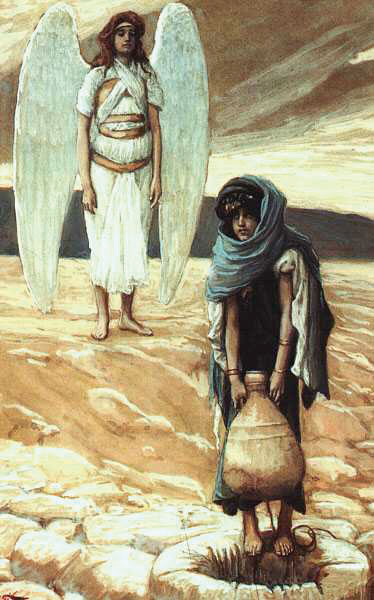Azadi ka Amrit Mahotsav Kolkata event honours four Clergymen
Pope Francis asks businesses to support working women: They’re ‘afraid to get pregnant’
Study: Christianity may lose majority, plurality status in U.S. by 2070
Indian politician declines Magsaysay Award under party pressure
Like John Paul II, Pope Francis heads to Kazakhstan during time of war

Jacob Chanikuzhy
According to Sophocles, “Children are the anchors that hold a mother to life.” It cannot be different for a father too. One of the most frustrated statements of the patriarch Abraham is in connection with his childlessness. When God promised Abram “great rewards” Abram’s immediate response was that he has no use of any blessings since he was without a child. He had great wealth. But his only sorrow is that the heir of his enormous wealth will be a servant of his household and not his own son. In response to Abram’s disappointment God promised Abram that he will have a son of his own (Genesis 15:4).
Abram’s wife Sarah might have known of God’s promise to Abram from her husband. But she knew that she was barren. So she advised Abram to take her Egyptian slave-girl Hagar and to have a child (Genesis 16:1ff.). We know how Sarah had a slave-girl from Egypt. When Sarah was taken to the harem of Pharaoh, Abram was given a lot of gifts including maid servants. It was a gift from Pharaoh for her “infidelity” to Abram. Now she makes use of Hagar, the reward resulted from her “infidelity,” for marring the marriage bond further. This sinful ploy using the reward of “sin” would eventually kill the peace of Sarah.
Abram heeded the advice of Sarah and acted accordingly. After all, God had not specified it that Abram would have a child from Sarah. Abram’s act is understandable although not justifiable. Just as Eve tempted Adam, here Sarah tempted her husband. Just as Adam and Eve ate the forbidden fruit “not to die,” so also Abram and Sarah sinfully contrived a child “not to die,” that is, to propagate their name and race for ever.
When Hagar felt that she was pregnant she began to despise her mistress Sarah. She believed that she has become the new beloved of Abram as she was able to give him a heir. When people mean spirit achieve new heights they forget their humble origins and their obligations to those who helped them and start acting arrogantly just like the slave girl Hagar. Originally Sarah forced Hagar to a sinful relation with her husband. Now, Hagar became a source of sorrow for Sarah. The very instrument that Sarah used for “sin” became the instrument of her sorrow.
Sarah complained to Abram against Hagar. Her furious words against Abram betray her suspicion that Hagar had the support of Abram in despising Sarah. But Abram’s suggestion “Do to her what you please,” led to unbridled domestic violence. No matter, how religious, educated, wealthy and socially well placed we are, domestic violence is a reality in many families. However, in the case of Hagar it is her pride and insolence that invited harsh treatment from her mistress. Eventually, Hagar flees from the house of Abram. She must have been going back to Egypt. But, on the way the angel of the Lord finds her.
First of all, the angel address Hagar not as the new wife of Abram or as the mother of Abram’s child but as “Sarah’s slave.” The angel helps her to shed off her pride and to recognize her original status as the slave of Sarah. Then, the angel asks her two questions. These questions are noteworthy. It can be understood as the questions God asks to every sinner who leaves the presence of God. The first question, “where have you come from” asks the sinner to examine the status, privileges and blessings he/she enjoys when he/she is living in union with God. Of course, to be a member in the family of God one has to be humble and one needs to submit oneself to the harsh mastery of the soul. The second question is concerning Hagar’s destination, “where are you going.” The sinner needs to ask where he/she is heading to. Hagar is now in the desert. It is perilous place for a pregnant woman. Every sinner who leaves the presence of God is heading to death and destruction. Hagar hearkened to advise of the angel goes back to the house of her mistress. But, she is re-entering the house of her mistress not as a defeated woman but as an heir of new promises. Every sinner who returns to God is graciously blessed and rewarded by God.
Leave a Comment